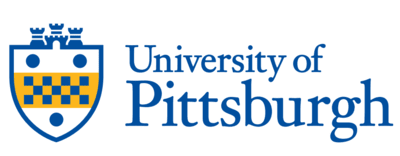University of Pittsburgh (Pitt) needed to fill a hole in their supplier contract portfolio for medical/surgical supplies. They were struggling to find a supplier willing to agree on a mutually-beneficial contract. The biggest problem Pitt was facing involved non-contract spend on campus. In one large research department alone, 90% of their spend was off-contract. The university also needed to streamline reporting, tracking of spend habits, and budgeting.

Slow Adoption
Pitt signed up for E&I’s Medline contract to source medical/surgical supplies, including medical apparel, scrubs, gloves, nursing supplies, cleaning products for the OR and labs, and wound management products. The university expected quick campus-wide adoption of the contract, but the adoption was startlingly slow. The first year after implementation, campus spend with Medline was only $5,000.
Supplier Preference
The biggest challenge was convincing departments and researchers who were set in the suppliers they had used for years to switch to contracted spend with a new supplier. Lab teams don’t change easily, and Pitt was using smaller, regional competitors that had been established on campus for a long time.
Freight & Inventory
Another important problem Pitt was having included the amount of space used for freight and inventory. They were looking to free up space on campus for more research and to support green initiatives.
Medline brought in a local dedicated representative who visited campus on a weekly basis, meeting with different departments.
“Everyone knows when it’s Wednesday because that’s when Medline is here, and, as a result, that’s when we really see a spike in spend.” – Michelle Smith, Sourcing Specialist, University of Pittsburgh.
Medline and Pitt worked collaboratively on data sharing, analyzing spend and proactively tackling new categories and leads to source new products. The data gleaned from conversations helped Medline identify departments to target for conversion of non-contract spend. On average, Medline offers Pitt 2-3% discounts on branded items and 25-26% discount on Medline items.
To address the freight and inventory issue, Medline arranged for fewer deliveries; next-day shipments are used when needed, reducing inventory space.
We get all-around support from Medline, in addition to advantageous pricing. When they visit us every week, we understand that this is a dedicated resource they are providing beyond just financial assistance. It has paid off in dividends.
Michelle Smith, Sourcing Specialist, University of Pittsburgh

Medline contract utilization increased significantly, and faculty response has been overwhelmingly positive. In addition to $100,000 in product savings last year, the University has realized $40,000 in freight savings in one department alone.
Spend in year two was $132,000 and reached $305,000 in only the first quarter of year three.
By integrating with the campus’ punch- out program, buyers save time by tracking spend and creating custom shopping lists. Fewer trucks on campus supports Pitt’s ongoing green initiatives. Eliminating inventory holding has freed up significant space that can be given back to research and learning.
“We’ve had other suppliers that we never saw again once the contract was signed,” said Smith. “But Medline has been a true partner and has transformed the way we source our medical and surgical supplies. They’ve been an invaluable addition to our portfolio.”